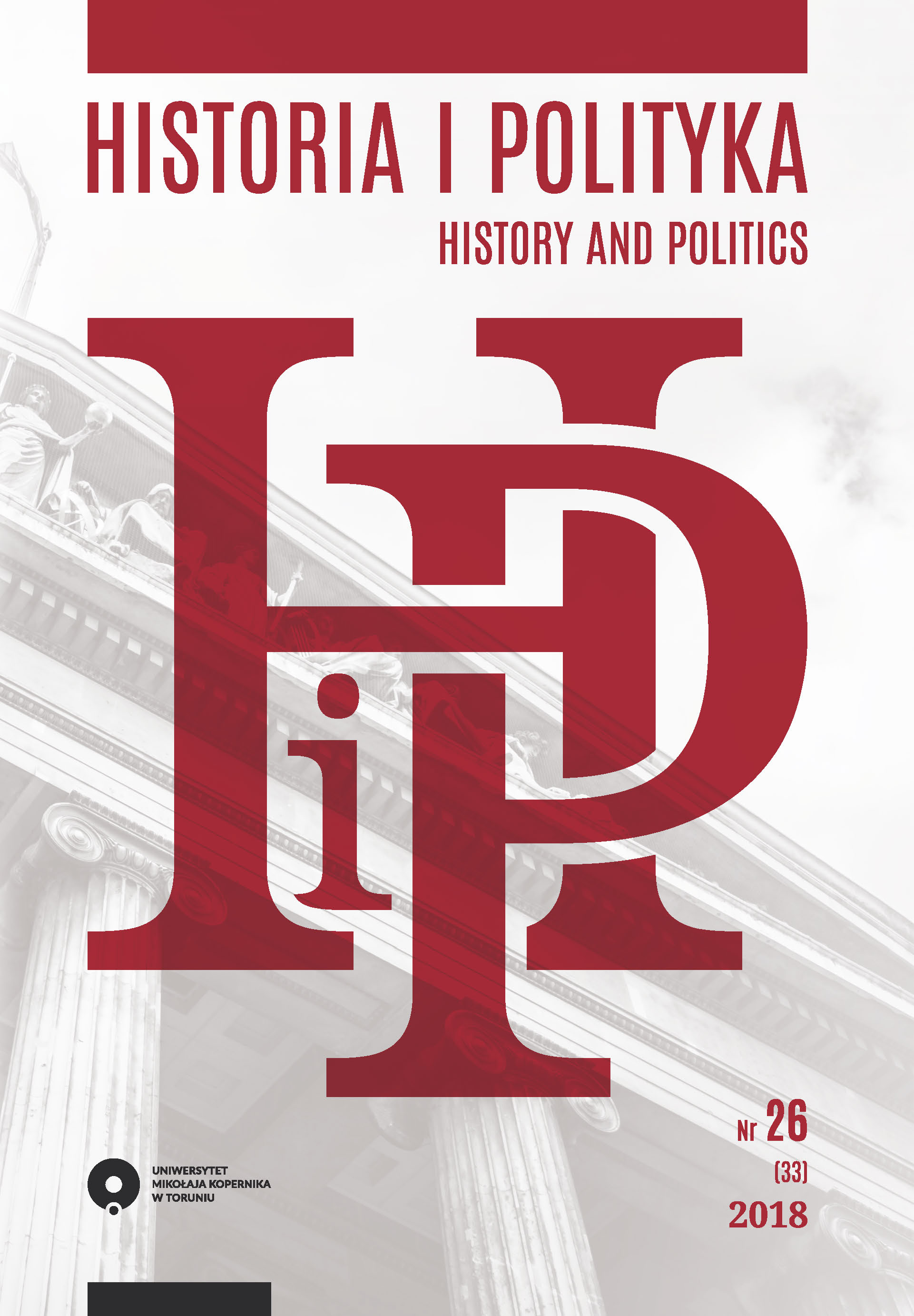The Development of Information Society Vis-à-Vis Threats in the Realm of Internal Security, as Construed by the Respondents from Kuyavian-Pomeranian Voivodeship
DOI:
https://doi.org/10.12775/HiP.2018.035Słowa kluczowe
information society, citizen, internal security, ICT, Kuyavian-Pomeranian voivodeshipAbstrakt
Information and communication technologies play a vital role in the lives of individuals, social groups or society as such. This fact is related not only to new devices but also to a further- and further-reaching software offer. Nowadays, e-services are offered not only by commercial entities (eg. e-banking or electronic trade platforms) but also by central administration (eg. mDokumenty [personal documents available on electronic devices], Regionalny System Ostrzegania [Regional Warning System] or by self-governments (eg. the application BLISKO). Frequent use of these programmes requires providing data which, when improperly secured, may be taken advantage of by criminals. Users, both individual and institutional ones, should remain alert while availing themselves of information and communication technologies. That is why, diagnostic research with respect to estimating threats – also in the realm of internal security – resulting from technological development is so important. Underestimating dangers may result in risky behaviours. Negligence or simply not conducting this sort of explorations usually lead to misfired educational-informational actions or to the increase in the number of crimes. The present paper presents the results of the research conducted among the inhabitants of Kuyavian-Pomeranian voivodeship in the area of threats to internal security, with the threats being contingent upon the development of ICT.Bibliografia
Centrum Badania Opinii Społecznej. (2009). Zagrożenia w internecie. Warszawa. Retrieved from: https://www.cbos.pl/SPISKOM.POL/2009/K_106_09.PDF.
Centrum Badania Opinii Społecznej. (2015). Dzieci i młodzież w internecie – korzystanie i zagrożenia z perspektywy opiekunów. Warszawa. Retrieved from: https://www.cbos.pl/SPISKOM.POL/2015/K_110_15.PDF.
CERT. (2016). Krajobraz bezpieczeństwa polskiego Internetu w 2016 roku. Retrieved from: https://www.cert.pl/PDF/Raport_CP_2016.pdf.
Fundacja Bezpieczna Cyberprzestrzeń. (2015). Największe zagrożenia dla bezpieczeńtwa w internecie w 2015 roku. Głos polskich ekspertów. Retrieved from: https://www.cybsecurity.org/wp-content/uploads/2015/01/Raport_FBC_Cyberzagrozenia_2015.pdf.
Fundacja Bezpieczna Cyberprzestrzeń. (2016). Największe zagrożenia dla bezpieczeńtwa w internecie w 2016 roku. Głos polskich ekspertów. Retrieved from: https://www.cybsecurity.org/wp-content/uploads/2016/02/Raport_FBC_Cyberzagrozenia_2016.pdf.
Goban-Klas T., Sienkiewicz P. (1999). Społeczeństwo informacyjne: szanse, zagrożenia, wyzwania. Kraków: Wydawnictwo Fundacji Postępu Telekomunikacji.
Majchrzak P., Ogińska-Bulik N. (2010). Uzależnienie od Internetu. Łódź: Wydawnictwo Akademii Humanistyczno-Ekonomicznej.
Marczewska-Rytko, M. (ed.). (2014). Haktywizm: cyberterroryzm haking, protest obywatelski, cyberaktywizm, e-mobilizacja. Lublin: Wydawnictwo UMCS.
Popiołek, M. (2016). Nierówności cyfrowe i podziały drugiego rzędu jak wyzwania dla gospodarki opartej na wiedzy. Ekonomiczne Problemy Usług, 122, 113–122.
Siwicki, M. (2013). Cyberprzestępczość. Warszawa: Wydawnictwo C. H. Beck.
Smarzewski, M. (2017). Cyberterroryzm a cybeprzestępstwo o charakterze terrorystycznym. Ius Novum, 1, 64–75.
Stachowiak, B. (2010). Poza granicami społeczeństwa informacyjnego – wykluczenie cyfrowe i co dalej? W: Z. Karpus, B. Stachowiak (ed.) Granice i świat współczesny (pp. 285–298). Toruń: Wydawnictwo Naukowe UMK.
Zawisza, J. (2017). Cyberprzestępczość i jej wpływ na bezpieczeństwo człowieka. Przedsiębiorczość i Zarządzanie, 18(5), part 2, 47–59.
Pobrania
Opublikowane
Jak cytować
Numer
Dział
Licencja
Uniwersytet Mikołaja Kopernika w Toruniu respektuje prawo do prywatności i ochrony danych osobowych autorów.
Dane autorów nie są wykorzystywane w celach handlowych i marketingowych. Redaktorzy i recenzenci są zobowiązani do zachowania w poufności wszelkich informacji związanych ze złożonymi do redakcji tekstami.
Autor, zgłaszając swój tekst wyraża zgodę na wszystkie warunki i zapisy umowy licencyjnej (określającej prawa autorskie) z Uniwersytetem Mikołaja Kopernika w Toruniu.
Statystyki
Liczba wyświetleń i pobrań: 436
Liczba cytowań: 0



